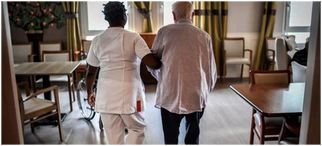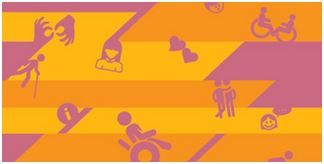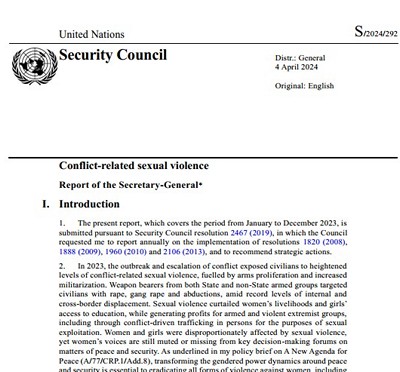Caregivers Have Special Vulnerability & Challenges during COVID-19 – USA
Извор: WUNRN – 25.05.2020

Health care has become a high-risk job in the wake of the coronavirus. (Stephanie De Sakutin/AFP/Getty Images)
By Tonya Mosley & Serena McMahon
Many caregivers — much like workers at Life Care Center in Kirkland, Washington, where more than 20 people have died from COVID-19 — are supporting some of the most at-risk people, such as the elderly, those with preexisting conditions and people with disabilities. Oftentimes, these workers are going into people’s homes.
“While everybody else is running from the coronavirus, they’re running towards it in terms of supporting one of the most vulnerable populations,” says Ai-jen Poo, director of the National Domestic Workers Alliance.
Home caregivers are on the frontlines of supporting people’s daily activities like bathing, moving, eating and administering medication.
There are an estimated 2 million home care workers in the U.S., she says. Counting both people who are working with the elderly and people with disabilities, both in the home setting and in institutional settings, the overall estimate is closer to 4.5 million workers, she says.
A majority of these workers are women, women of color and immigrant women, she says. Job security is often hard to come by.
“These jobs are historically incredibly insecure jobs, jobs that have no job security, no access to a safety net, no paid sick days and poverty wages, which means that there are no savings for emergencies,” she says. “And they have historically not had adequate access to health care and health insurance.”
She says the protocols given to home caregivers about combating the spread of coronavirus have been “extremely inadequate,” leading to more unanswered questions than solutions. Many directives are telling people to stay home or work from home if possible, which isn’t a choice for most domestic workers, she says.
Another directive is practicing good hygiene — which is a basic tenant of caregiving.
“Yes, of course, domestic workers know they have to wash their hands. They pay an incredible amount of attention to basic hygiene,” she says, “and it just isn’t enough in this moment.”
The government can enact several “critical solutions” to protect these workers as the fears of coronavirus continue to grow across the country, she says. First is supporting the Domestic Workers’ Bill of Rights, a proposed federal bill that would “ensure health and safety protections and sick days and other critical safety net pieces for this workforce,” she says.
Another piece of legislation, sponsored by Sen. Patty Murray of Washington and Rep. Rosa DeLauro of Connecticut, would offer 14 paid sick days for all workers in times of public health emergencies, she says. It was blocked from passing in the Senate on Wednesday by Republican Sen. Lamar Alexander.
The emergency paid sick days legislation is critical, she says, because it would directly impact home caregivers and “millions of American workers who are in precarious, temporary part time positions” who need protection during times like these.
https://www.wbur.org/hereandnow/2020/03/12/coronavirus-home-caregivers-elderly


